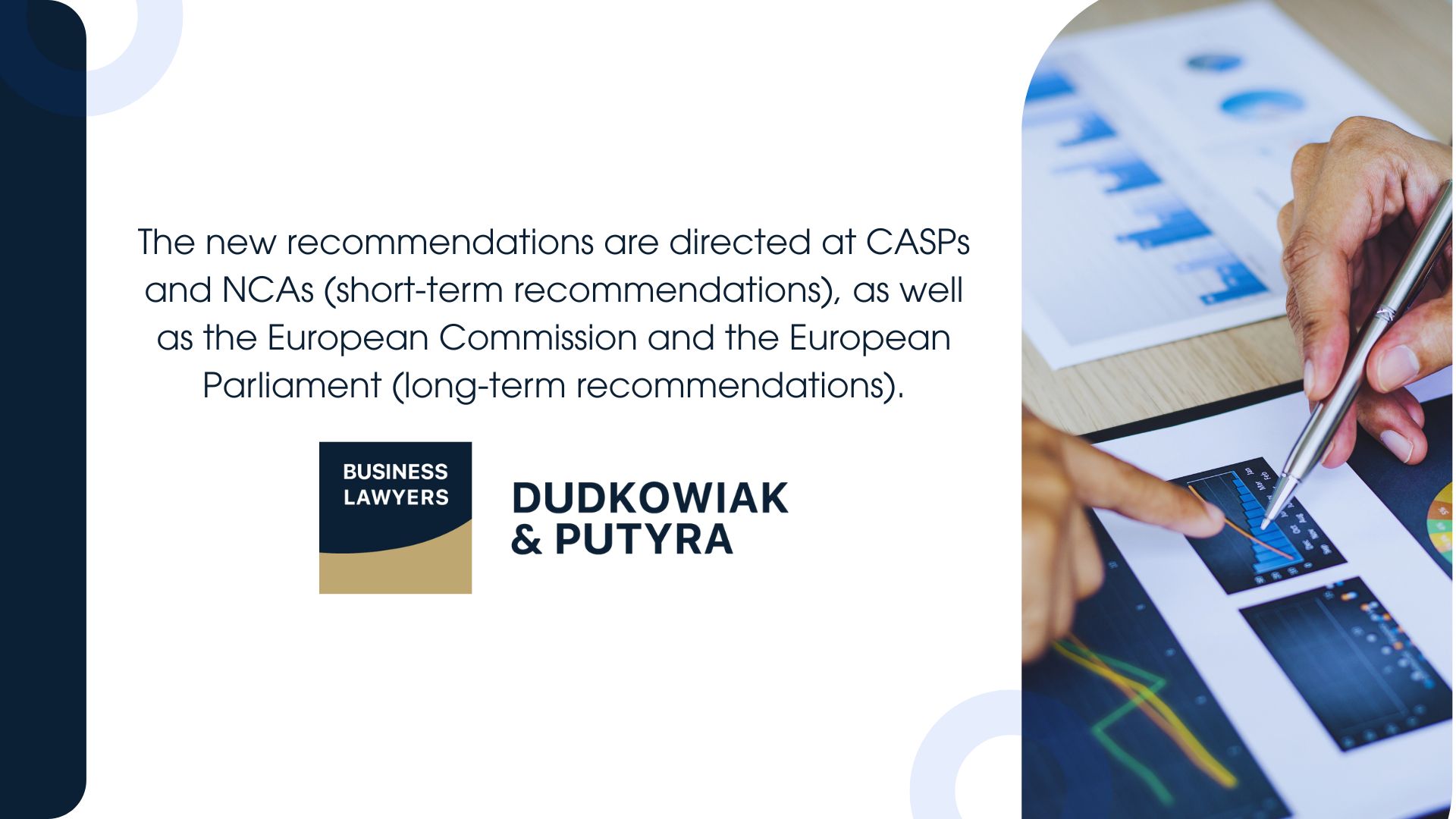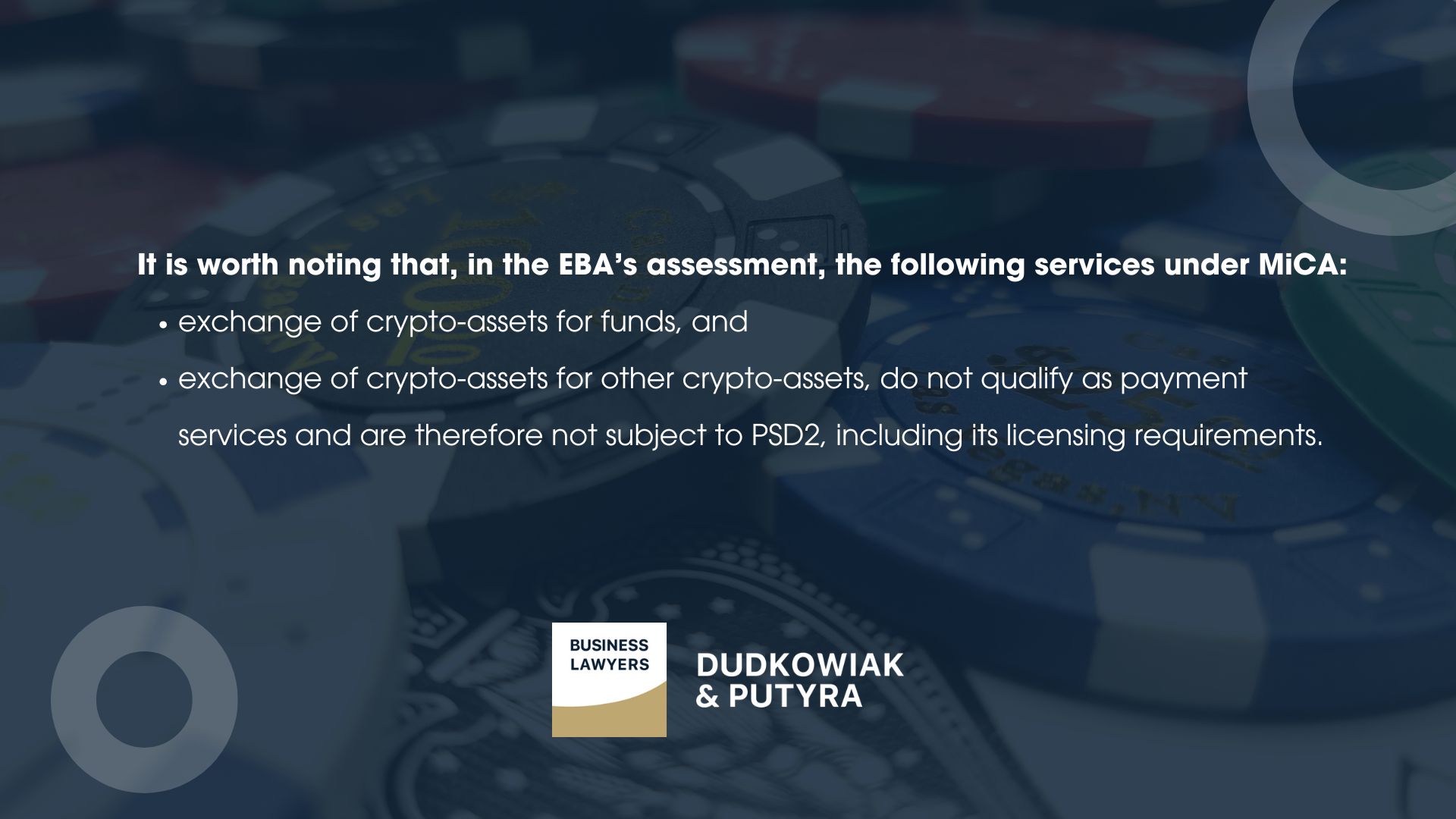New EBA Opinion: When Do Cryptoasset Services Qualify as Payment Services?
On 10 June 2025, the European Banking Authority (EBA) published an opinion concerning the qualification of certain crypto-asset services involving electronic money tokens (EMTs, Opinion), provided by crypto-asset service providers (CASPs), as payment services.
In response to interpretative uncertainties and diverging supervisory practices among national competent authorities (NCAs) across the EU – resulting from the dual legal nature of EMTs (being both electronic money and cryptoassets) – the EBA issued recommendations.
These are directed at CASPs and NCAs (short-term recommendations), as well as the European Commission and the European Parliament (long-term recommendations, regarding scenarios for legislative changes concerning MiCA and PSR regulations, as well as PSD3, without a specific time frame.).

Which cryptoasset services exactly qualify as payment services?
The EBA focused primarily on the classification of selected EMT-based services, without addressing the broader scope of crypto-asset services.
The following crypto-asset services should be classified as payment services:
- the transfer of EMTs may constitute a payment transaction within the meaning of Annex I, point 3 of PSD2, but only if the tokens are offered and executed by entities acting on behalf of their clients. Thus, services involving mere intermediation in the transfer of such tokens are not regarded as payment services.
- The operation of custodial wallets may be treated as the maintenance of a payment account where the wallet is operated on behalf of one or more clients and enables the sending and receiving of EMTs to and from third parties.
- The service of custody and administration of crypto-assets may alternatively be classified as:
- operations necessary for the maintenance of a payment account (pursuant to points 1 and 2 of Annex I to PSD2), i.e. as “an account held in the name of one or more payment service users which is used for the execution of payment transactions” (as defined in Article 4(12) PSD2), or
- the execution of payment transactions, including transfers of funds on a payment account held with the payment service provider of the user or with another payment service provider (pursuant to point 3 of Annex I to PSD2).
What doesn’t qualify as a payment service?
It is worth noting that, in the EBA’s assessment, the following services under MiCA:
- exchange of crypto-assets for funds, and
- exchange of crypto-assets for other crypto-assets, do not qualify as payment services and are therefore not subject to PSD2, including its licensing requirements.

The EBA recommends that the European Commission should not treat EMT transfers on behalf of customers, but not made for the purpose of paying for goods/services or as P2P transactions, but e.g. for investment or speculative purposes, as payment services.
As a side note, the EBA does not require payment service providers (PSP) providing EMT-related services to obtain authorisation as CASPs.
The EBA emphasises that, following the end of the transitional period (set for 1 March 2026), NCAs should verify the legality of payment services provided by CASPs, including services closely related to the provision of payment services – such as strong customer authentication for access to custodial wallets and the initiation of EMT transfers, and compliance with fraud reporting obligations.
Conclusions from the EBA opinion
Without a doubt, the EBA’s position will be of significant importance to businesses operating with stablecoins.
The potential requirement to obtain an additional authorisation – or to partner with a payment service provider – will create an extra compliance obligation not explicitly stated in the legislative text.
In practice, forming strategic partnerships with licensed PSPs may prove more viable than pursuing a separate PSD2 licence. In the Polish regulatory context, this would involve combining CASP authorisation with the status of a national payment institution.
Want to prepare for the changes? If your company provides services using EMT tokens or plans to expand its business to include stablecoins, it is worth analyzing the obligations arising from the EBA opinion now. Contact our law firm to assess the regulatory risk and choose the optimal operating model.


